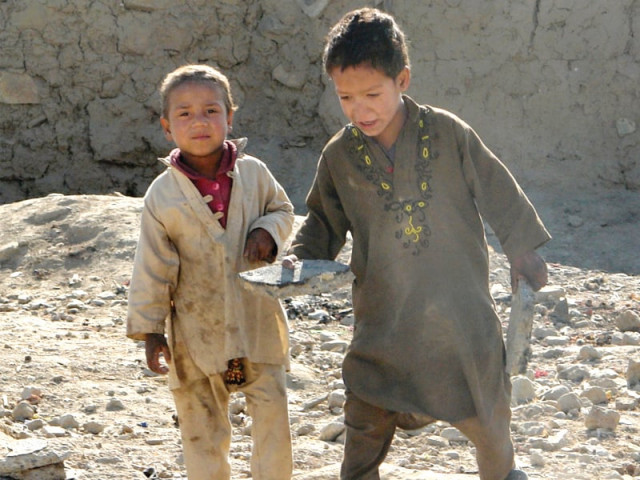The ordinary majority
While world looks forward to peace talks with Taliban, ordinary citizens like Daoud cannot forget atrocities of past.

The icy blue moonlight illuminated the stark orchard, the snow crunching beneath my booted feet as I took the dogs for one last amble before turning in for the night. The silence was profound, my snowbound world ethereal and the fact that I hadn’t seen a single soul for days somewhat of a healing meditation. Then I heard it and automatically cringed. The insistent ring of the telephone late at night could only mean bad news.
“Banafsha…Banafsha,” pleaded a torturously broken voice, “they are letting the Taliban come back.”
“What happened?” I demanded, recognising Daoud’s* voice, “Are you okay? What the hell is going on?”
“A bunch of Taliban diplomats…‘diplomats’ for God’s sake… have been covertly taken to Qatar for secret talks,” he said, “Tayeb Agha, Mullah Mohammad Omar, Sher Mohammad Abbas Stanekzai, Shahabuddin Delawar and Mohammed Qalamuddin are opening an office in Qatar to hold peace talks with other nations.” Daoud felt betrayed, he couldn’t believe how the world could forgive the Taliban and give them international recognition. “The Mujahideen didn’t fight for this, they won’t take it. The Taliban will start another war! We want peace not more war,” he said. Twenty-one-year-old Daoud, was born and raised in Kabul until his family were forced to flee after the Taliban took control in 1996.
He was only five years old at the time but he can still vividly recall the dismembered bodies lying in the streets of the city. Despite this, Daoud returned to Kabul as soon as he had completed his education with the intention of helping his country. Life in Kabul is far from easy, yet his belief in a peaceful future did not falter.
Suicide bombings, assassinations, gunshots in the night and troops patrolling in APCs are all an unavoidable part of Kabul today. The tension in the air, both day and night, is palpable and Daoud has phoned at other times to give me on the scene information. This time though the feeling of total betrayal was just too much.
The ‘ordinary’ majority are rarely heard, the thousands upon thousands of internal refugees eking out a bleak existence in miserable camps throughout the country. They continually pay the price but have no voice of their own.
I spoke to another Afghan, who is currently working in the Gulf. “It is good that peace talks are taking place,” he said to my surprise. “The Taliban must change their policies and laws though. They can’t be like they were before otherwise there will be civil war,” he explained. He said that if the Taliban were back in charge then the Hazara will be pitted against the Pakhtun who in turn will be up in arms against the Tajik and so on. “We have already endured 32 years of continuous war; we too have the right to live in peace. I, like most other Afghans, want peace not war. War is someone else’s agenda not ours,” he said.
A female Afghan university student in California told me that she is determined to return and help rebuild her country after graduation. She was appalled by the very mention of the word ‘Taliban’. “We will never allow the Taliban to run riot again,” she said. When I brought her up to date on the ‘peace meeting’, she couldn’t believe it. “No way, they can’t do this to us! The world won’t let them. If the world stands by and let’s such a thing happen then this time even the women will stand up and fight,” she said.
“Remember The Kite Runner?” responded a London-based Afghan. He could never understand why people wanted to read about and watch the horrors they lived through. “How could they be spellbound by our pain and humiliation? They were fascinated by that stadium...the public execution ground. But it wasn’t fiction…it was our fact and this, Banafsha, is the problem with the world today,” he said, “No one cares about anyone else these days. It is everyone for themselves.”
He believes that death and violence has become the accepted norm, children are so surrounded by violence that they can no longer differentiate between what is reality and fiction. “These same children will grow up to be the leaders of the world, unless there is massive change and there won’t be — the only word left in the dictionary will be ‘WAR’ in capital letters,” he said.
*Name has been changed .
Published in The Express Tribune, Sunday Magazine, March 11th, 2012.



















COMMENTS
Comments are moderated and generally will be posted if they are on-topic and not abusive.
For more information, please see our Comments FAQ